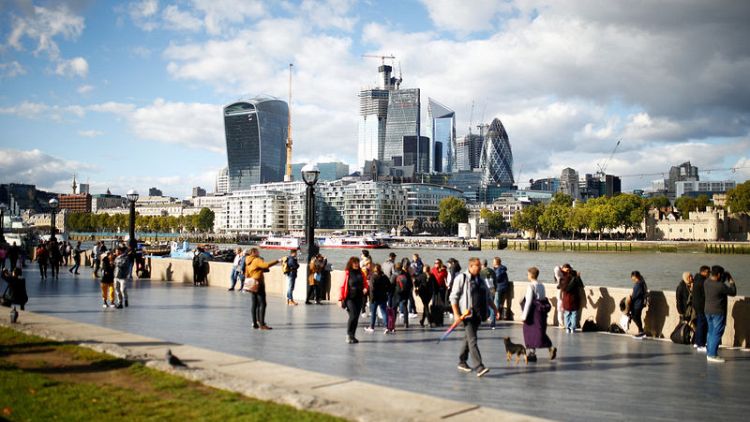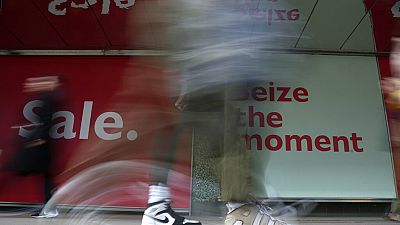LONDON (Reuters) - British companies cut their investment in the second quarter of 2018, when Brexit was less than a year away, and the country's balance of payments shortfall grew more than expected, official data showed.
The Office for National Statistic confirmed a previous estimate that Britain's overall economy grew by a quarterly 0.4 percent in the April-June period.
But it lowered the annual growth rate in the second quarter to 1.2 percent from a previous estimate of 1.3 percent.
It also cut the quarterly growth rate in the first three months of the year, when the country was hit by heavy snow, to 0.1 percent from 0.2 percent.
Economic growth in the first half of 2018 was the weakest for a six-month period since the second half of 2011, the ONS said on Friday.
"Although it has picked up a little from a slow start to the year, underlying economic growth remains persistently below the long-term average," ONS statistician Rob Kent-Smith said.
The revised figures showed business investment fell 0.7 percent in the second quarter compared with the first three months of 2018 and was down for the second quarter in a row.
At the same time Britain's balance of payments shortfall got bigger, hit by the country's wider trade deficit.
The difference between money flowing in and out of the country was negative to the tune of 20.3 billion pounds between April and June, bigger than a deficit of 15.7 billion pounds in the first quarter, the ONS said.
The shortfall was also bigger than a median forecast of 19.4 billion pounds in a Reuters poll of economists.
As a share of GDP, the deficit rose to 3.9 percent, up from 3.0 percent in the first quarter and was the biggest in a year.
Bank of England Governor Mark Carney has warned that Britain's large current account deficit left it reliant on "the kindness of strangers".
That could be a risk as the country prepares to leave the European Union in March with no clarity yet on whether it will smooth its exit with a transition period.
The ONS has already published its estimate for GDP growth for the three months to July which showed the economy running at its fastest pace in nearly a year, helped by hot summer weather and the World Cup which encouraged consumers to spend.



